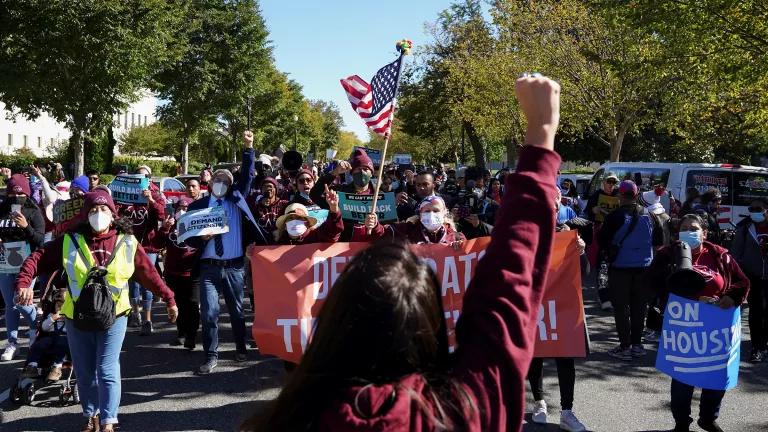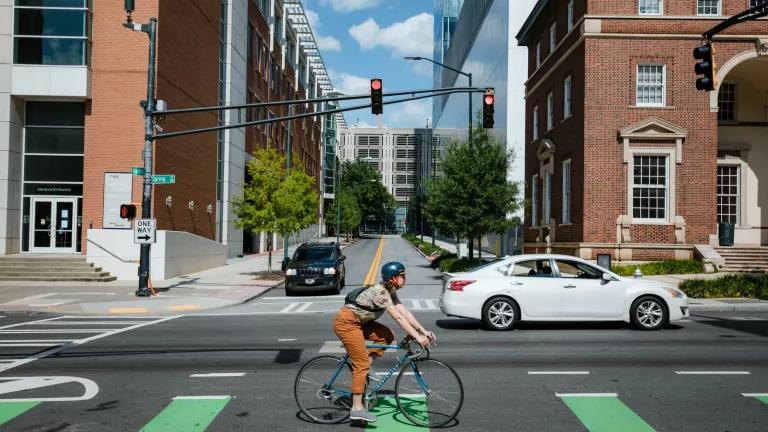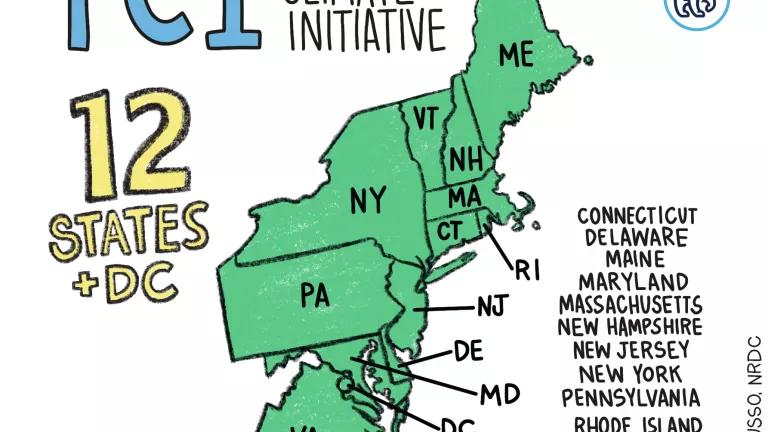Bloomberg Philanthropies, the Natural Resources Defense Council and partners today announced Charlotte, North Carolina, as the latest winning city in the Bloomberg American Cities Climate Challenge.
The Bloomberg American Cities Climate Challenge is a $70 million dollar program that will accelerate local efforts to tackle climate change and promote a sustainable future for millions of people across the country. NRDC is proud to join with Bloomberg Philanthropies, Delivery Associates, as well as several other partners, to support the participating cities. The challenge is focused on addressing the two main sources of pollution in the majority of cities: buildings and transportation.
Cities and their surrounding areas play a pivotal role in climate action—together, they account for more than 70 percent of global greenhouse gas emissions and two-thirds of the world’s energy use. In fact, if U.S. buildings were their own country, they would rank third in the world in energy use. It’s also important because residents of our nation’s cities are on the frontlines of climate change, bearing the brunt of its effects, from heat waves to increasingly frequent flood events. In light of new warnings by a U.N. scientific panel that we could see the worst impacts much sooner than expected if we don’t act swiftly and boldly, cities have a vested interest in doing just that.
The cities chosen to participate in Bloomberg’s American Cities Climate Challenge have laid out concrete plans to cut climate change pollution, improve the health and well-being of their residents, increase economic opportunity, and improve quality of life.
As one of the fastest-growing cities in the U.S., Charlotte is determined to proactively align growth in walkable communities near transit and jobs.
With a due date of 2020, Charlotte plans to publish a 2040 Future Plan that sets the course of development for the next 20 years. The purpose of the study is to analyze and select the most effective, efficient and sustainable path for smart growth that facilitates walking, biking, transit and other no/low emission transportation options. In addition, Charlotte plans to add 13 new rapid bus routes in north Mecklenburg County (which currently has just 4). With the expansion, the city will be able to nearly quadruple the size of the population it can serve by 2025, with the capacity to transport a total of 194,000 people.
Transportation solutions for the first and last mile of residents’ commute (think the trip to and from a bus stop) are also a priority for Charlotte. The city plans to build a shared mobility program that increase shared scooter and bike trips by 25% annually over the next two years while developing a city-wide marketing strategy focused on rider safety.
On top of that, the city’s ambitious Drive Clean Program will work to encourage more private ownership of electric vehicles and strive to eliminate the need for any gas-powered passenger vehicles within the city’s own fleet. That means they are working to install more than 300 electric vehicle charging stations across the city, and replace over 500 gas powered city vehicles with electric vehicles by 2020 (with a goal of reaching 100% by 2030). And it gets even more exciting: Charlotte will work with residents towards a goal of having 50% of all cars in the community be electric vehicles by 2030 . With partners across the city, Charlotte is peddling full force to develop their transportation infrastructure effectively, efficiently, and sustainably to support this kind of increase in electric vehicles.
Mayor Vi Lyles knows that people are the beating heart of the Queen City. And building a sustainable and resilient Charlotte for tomorrow means opportunities for new jobs today. A new City Apprenticeship Program aims train and employ 25 individuals for work related to Charlotte’s Strategic Energy Action Plan by 2020. And the city will expand its Project P.I.E.C.E., which addresses labor market shortages in the construction industry by increasing employment opportunities for individuals who may face barriers to employment, to include clean energy job programs.
The City of Charlotte will also put greater emphasis on reducing the energy used by its own facilities and generating clean, renewable electricity. Not content with picking just the low-hanging fruit, the city is planning deep energy efficiency retrofits for municipally owned facilities. And firetrucks and firefighters will soon be sharing the spotlight with solar panels at 42 fire stations across the city.
Last, but certainly not least, the city that has become the nation’s second-largest financial center will tap into that expertise to capitalize on savings opportunities through an Internal Revolving Fund. Partnerships with heavy hitters headquartered in Charlotte could be catalysts to take the local green economy to incredible highs. (Looking at you Bank of America, Wells Fargo and Duke Energy!)
Charlotte has joined the ranks of cities that are demonstrating forward-thinking work that can help our country tackle climate change by starting in their own backyard. United in a common goal of leaving our children a better future—and with more cities on the way—this is only the beginning.




